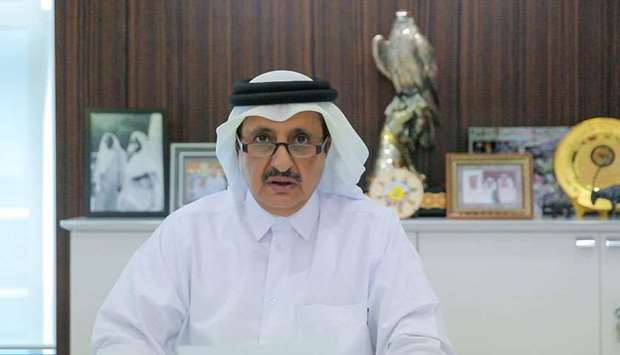Qatar has been at the forefront of the signatories of the UN Convention on International Settlement Agreements Resulting from Mediation, otherwise known as the Singapore Convention on Mediation, which entered into force on September 12, Qatar Chamber chairman Sheikh Khalifa bin Jassim al-Thani said on Wednesday.
Sheikh Khalifa, during a webinar held by the Qatar International Centre for Conciliation and Arbitration (Qicca) at Qatar Chamber, stressed that mediation “is a fast, efficient, and low-cost way to resolve disputes between parties.”
In a statement, Qatar Chamber noted that the webinar aims to mark the International Law Day and celebrate the Entrance into Application of the Singapore Convention. The virtual event was attended by many specialists, legal experts, and arbitrators, it also stated.
Sheikh Khalifa said mediation has become one of the most important alternatives for settling commercial disputes. This has made many countries interested in adopting legislation related to mediation procedures through courts or through arbitration centres specialised in resolving commercial disputes, he added.
Underlining the chamber's interest in arbitration, Sheikh Khalifa said Qatar Chamber has established Qicca to encourage parties of the commercial relationship to activate the mediation principle in resolving disputes.
Qicca board member for International Relations Sheikh Dr Thani bin Ali al-Thani said Qatar was among the first three countries that ratified the convention, citing that His Highness the Amir Sheikh Tamim bin Hamad al-Thani issued an instrument of ratification approving the convention on February 12, 2020.
Sheikh Khalifa said the ratification means enforcing settlement agreements resulting from mediation in other countries, starting with the three that have ratified this agreement, namely Singapore, Fiji, and Qatar.
He also said Qatar’s accession to this convention would open new perspectives for arbitration and settlement as one of the alternative means of resolving disputes, thus providing an appropriate environment for the success of commercial businesses. Sheikh Khalifa expressed Qicca’s welcome to the implementation of the convention in three countries, including Qatar.
“At least 53 countries signed the Singapore Convention. This indicates that world countries are interested in adopting mediation and conciliation as means of settling disputes between commercial companies, economic entities, and financial institutions,” he added.
A number of topics related to mediation as a way of resolving disputes were also discussed during the webinar. The speakers gave a presentation on the beginning of mediation in Qatar as the first steps for resolving disputes, which was followed by the judicial system in 1971.
The speakers indicated that due to the progress of societies and expansion of legislation, the number of cases increased, and accordingly, the alternative means for dispute settlement such as arbitration and mediation emerged.
They also highlighted the differences between mediation and other alternative means of dispute settlement such as arbitration, noting that the low cost of these means and the speed of their procedures contributed to the increasing spread of the culture of arbitration and mediation.
Additionally, the speakers highlighted the impact of Singapore Convention on encouraging mediation in the Arab World, the role of Singapore Convention in enhancing the efficiency of mediation and arbitration clauses, and Qatar's positive and effective role as it is the third country to ratify the convention.

